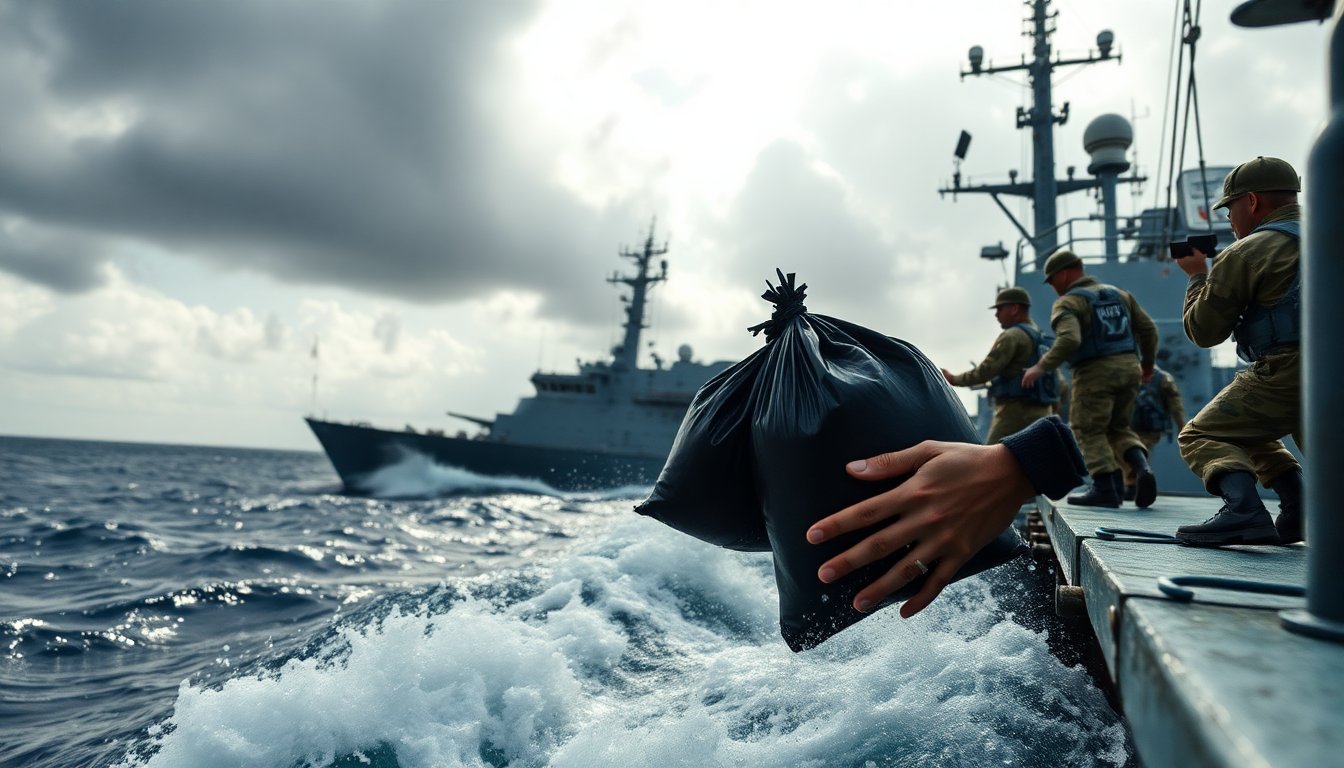Table of Contents
The fight against drug trafficking in the Caribbean reached a critical juncture with the U.S. military’s latest operation near Venezuela. This incident resulted in the unusual outcome of several individuals being captured alive following a boat strike targeting alleged drug smugglers. It marks a significant development in the ongoing struggle to combat the illicit drug trade in this volatile region.
The operation stands as the sixth of its kind aimed at disrupting drug smuggling activities in the Caribbean. It showcases evolving tactics employed by military forces. Historically, such strikes have often resulted in the total loss of life among those involved in these dangerous ventures. However, this time, some individuals managed to survive, raising questions about the future of military engagements in drug enforcement.
Details of the operation
On the day of the operation, U.S. military forces executed a coordinated strike against a vessel suspected of drug trafficking. Unlike its predecessors, this mission resulted in the detention of survivors aboard the targeted boat. The military’s approach reflects a shift in strategy that prioritizes not only disrupting drug shipments but also collecting intelligence from those apprehended.
Context of the Caribbean drug trade
The Caribbean region has long been a hotspot for drug trafficking, with numerous criminal organizations exploiting its waterways to transport illegal substances. The strategic location of these islands makes them ideal for smugglers aiming to reach larger markets, particularly in the United States. This ongoing issue has prompted a series of military interventions aimed at curbing these activities.
In the past, military operations in this area have often concluded with significant loss of life among those involved in smuggling. The latest incident, however, marks a departure from that trend, illustrating a potential for a more nuanced approach to military engagement in this complex issue. By capturing survivors, authorities can benefit from firsthand accounts that may lead to crucial insights into the operations of these trafficking organizations.
Implications of capturing survivors
The capture of survivors from the recent boat strike carries implications that extend beyond immediate law enforcement actions. It opens the door to gathering vital information that could aid in dismantling established drug networks. Survivors can provide intelligence on routes, contacts, and methodologies used by smugglers, which can prove invaluable in ongoing efforts to combat drug trafficking.
Future military strategies
As military engagements continue in the region, the shift towards capturing and interrogating survivors could signal a new chapter in how the U.S. approaches drug enforcement. This change may lead to a more comprehensive strategy that balances the need for immediate disruption of drug shipments with the long-term goal of dismantling trafficking organizations.
Authorities may also need to consider the humanitarian aspects of these operations. As survivors of such encounters, these individuals could be affected by factors including trauma and the legal implications of their involvement in drug trafficking. Addressing these aspects could lead to a more ethical approach in dealing with individuals apprehended during military operations.
The U.S. military’s latest operation near Venezuela has intensified the fight against drug trafficking while raising important questions about future military strategy in the region. The survival of individuals involved in the boat strike offers a glimpse into potential new approaches that prioritize intelligence gathering alongside immediate tactical objectives. As the situation evolves, continued monitoring and adaptive strategies will be critical in addressing the multifaceted challenges posed by drug trafficking in the Caribbean.


